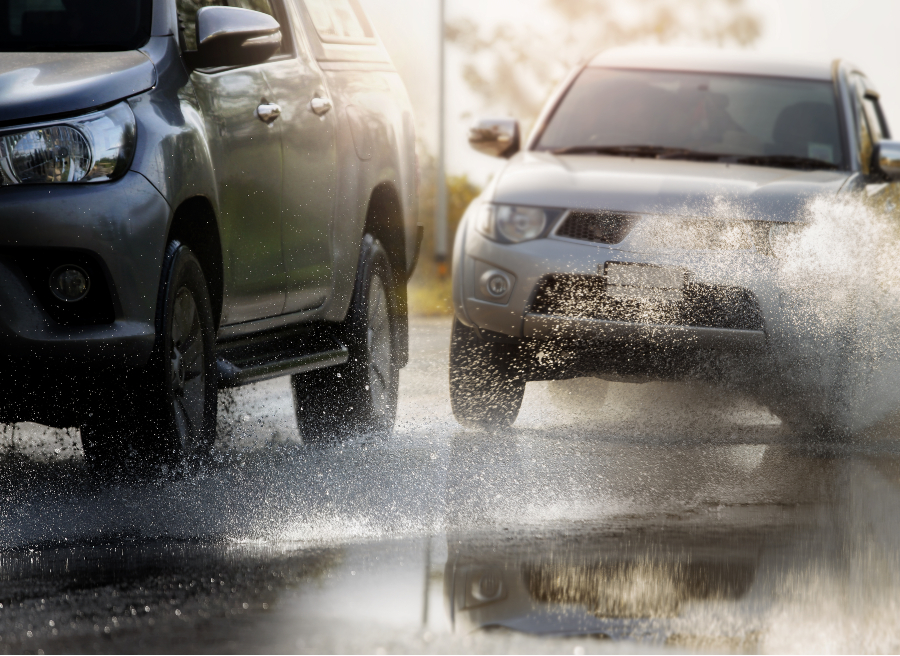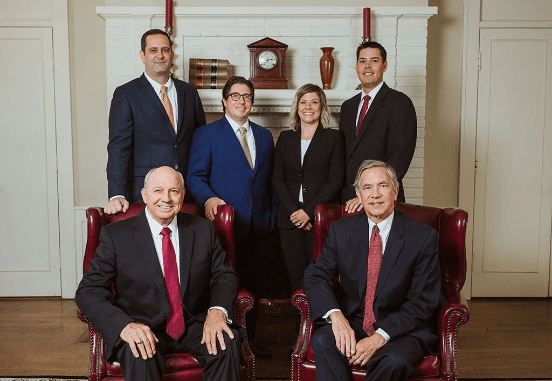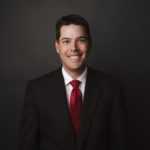 Florida is one of the rainiest states in the nation, and we are currently in the rain and hurricane season. Florida has more thunderstorms and lightning strikes each year than anywhere else in the country. According to the U.S. DOT, over 1.2 million traffic crashes each year are weather-related. Most weather-related accidents happen on wet pavement (70%) and during rainfall (46%). Who is liable for the damages if you are involved in a Florida car accident caused by bad weather?
Florida is one of the rainiest states in the nation, and we are currently in the rain and hurricane season. Florida has more thunderstorms and lightning strikes each year than anywhere else in the country. According to the U.S. DOT, over 1.2 million traffic crashes each year are weather-related. Most weather-related accidents happen on wet pavement (70%) and during rainfall (46%). Who is liable for the damages if you are involved in a Florida car accident caused by bad weather?
After you have been in an Orlando car accident, it’s essential to enlist the help of a personal injury attorney. An attorney can steer you through the claim and legal process. They will also help you collect compensation from the driver liable for damages. Wooten, Kimbrough, Damaso & Dennis, P.A. provides free consultations to accident victims.
Rain and wet pavement increase the chances of an accident.
Rain impacts roadways, increasing the chance of an accident in the following ways:
Limited visibility
In the rain, poor visibility is a significant threat to safe driving safety. You might be less aware of oncoming cars, pedestrians, and hazards on the road. An ordinarily observant pedestrian may become distracted by fiddling with an umbrella or a rain slicker. Plus, raindrops deaden sound, so the usual audio clues for measuring car distances become obscured.
Pavement friction
When you drive after it has been raining, you should be aware that the road’s surface will be covered in a film of water, oil, and grease, which can reduce your traction and cause your car to skid.
Lane obstruction such as large puddles and potholes created by excessive rain
A prolonged, hard rain can also cause deep puddles on the surface of the , which may cause your car to hydroplane, where the tires lose traction and essentially cause the vehicle to skim across the water until the wheels can get traction. Poorly drained roads can be covered in huge pools of water, which may not seem deep or serious until you drive on them and your car spins out of control.
Variable traffic speeds
In wet weather, many drivers slow down and proceed cautiously. However, some drivers ignore the weather and road conditions and drive at or above the speed limit.
Car accidents often lead to physical damage, pain, and suffering. Fortunately, an Orlando car accident lawyer may be able to help you recover the compensation necessary to get your life back together and on the road to recovery.
What proof do you need to provide to hold another driver liable for damages?
When you file a claim against another driver, the insurance company will want some evidence of the conditions leading to the accident. If you go forward with a lawsuit, you’ll need to prove to the court how the other driver was at fault.
An insurance adjuster may want proof of the weather.
You can obtain a copy of the police report, which will document wet pavement and weather conditions from the police officer’s point of view. Witness statements can also serve as a written claim of the weather conditions. You may also want to get a copy of the weather report for that day from the National Oceanic and Atmospheric Administration.
Even in bad weather, you will still need to prove that another driver was at fault to claim damages.
How a driver reacts to bad weather while driving is what causes an accident. If they failed to drive with “reasonable care” (negligence), they could be held liable for the damages in a car accident. The challenge will be defining reasonable care.
Reasonable care is generally considered the same actions any prudent person would take in the same type of circumstances. In heavy rain, is it prudent to continue to drive the speed limit of 65 on the highway? Would a reasonable person leave their headlights off in an afternoon thunderstorm?
Reasonable care also extends to the maintenance of your car. Most reasonable drivers keep their vehicles in good repair. When you do not replace your tires as recommended by tire manufacturers and your car skids on bald tires in the rain and hits another car, you could be liable for the damages. If you cannot see in a rainstorm because your windshield wipers are broken and hit another vehicle, you will likely be held responsible for injuries and vehicle damage.
Orlando car accident lawyers Wooten, Kimbrough, Damaso & Dennis, P.A. have helped the injured since 1966 hold negligent parties responsible for the damage they’ve caused.
Who pays the compensation?
In most car accidents, compensation comes from either your insurance company or the other driver’s. Here is what you will want to know about Florida insurance.
Florida is a no-fault insurance state.
In states with No-fault auto insurance laws, every driver must file a claim with their insurance company after an accident occurs, regardless of who was at fault. All drivers must purchase personal injury protection (PIP) as part of their auto insurance policies in states with no-fault laws,. Even if the car accident is your fault, you can receive compensation from your insurance carrier for medical bills and loss of income. In situations where the other driver was at-fault for causing the crash, that individual may be responsible for covering your medical expenses that exceed the $10,000 in PIP benefits that your own auto insurance provides.
Florida is a pure comparative negligence state.
Pure comparative negligence means that recovery of damages will be reduced by your percentage of fault in the car accident. Suppose you were driving a car too fast in a thunderstorm, but you hit a vehicle that had broken taillights. In that case, you and the other driver had a percentage of fault in the accident. A jury ultimately determines fault if your case goes to trial. Sometimes, your attorney and insurance representatives can determine fault and settle the case out of court.
Schedule a Consultation with Orlando’s Top Attorneys
Wooten, Kimbrough, Damaso, & Dennis P.A. is a team of qualified personal injury trial attorneys who have helped the injured since 1966. We have been recognized as Top Attorneys in Orlando and the state of Florida. We take our client’s cases personally and are committed to ensuring we provide full advice and obtain the best possible result.
Our firm has recovered millions for clients by uncovering all the necessary information to pursue compensation. We fight for our clients and see their case through to a successful outcome. Call us at (407) 843-7060 or submit a contact form online today to schedule a free consultation.

Legally Written and Reviewed by a Managing Partner
Wooten, Kimbrough, Damaso, and Dennis, P.A.
Our content is written and reviewed by our founding attorneys Butch Wooten, Orman Kimbrough, Mike Damaso, and Tom Dennis. Helping the injured since 1966, they’ve successfully handled thousands of personal injury cases across Florida. Whether you’re a Florida resident or an out-of-state visitor injured in Florida, we’re dedicated to providing clear and reliable information to help you navigate your legal options confidently.




